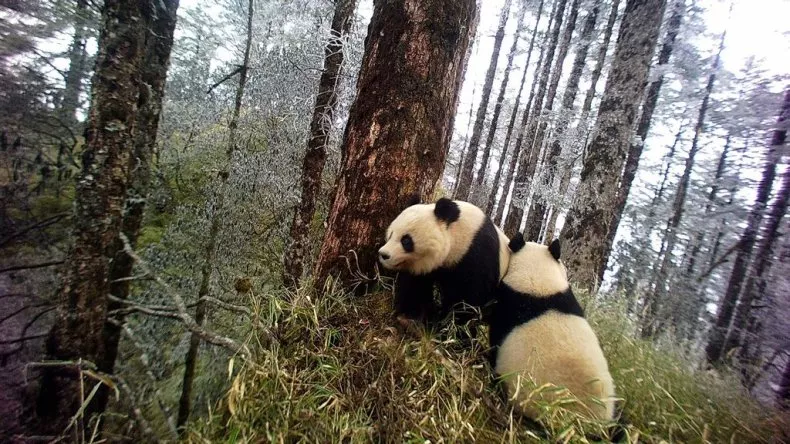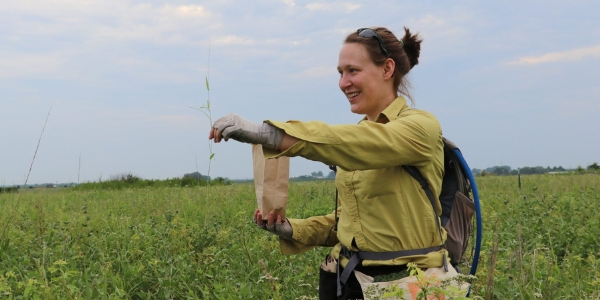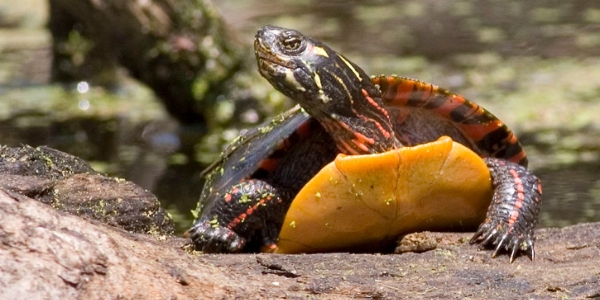Roughing it a little benefits pandas, EEB researchers find
Researchers are raising concerns that when wild pandas live the high life in manmade landscapes, they get too comfortable to bother mating.
No sex, of course, means no offspring, putting the species at risk. The World Wildlife Fund considers the giant panda a "vulnerable" species and says fewer than 1,900 of them remain in the wild.

Research led by EEB PhD alumni Thomas Connor and core faculty member Jianguo "Jack" Liu found that a panda's habitat is ideal when it is happy enough to thrive but not so comfortable that it won't move around or try to reproduce. Both are members of MSU's Center for Systems Integration and Sustainability in the College of Agriculture and Natural Resources Department of Fisheries and Wildlife.
The study published in the journal Conservation Biology concluded that creating the "perfect" habitat may actually be counterproductive because pandas are discouraged from breeding. Moving around to find suitable habitat and new mates reduces the likelihood of inbreeding and promotes genetic diversity.
Researchers are raising concerns that when wild pandas live the high life in manmade landscapes, they get too comfortable to bother mating.
The idea of creating ideal habitats in the wild is one result of climate change and human activity damaging and sometimes destroying the pandas' natural habitats. But a little adversity is often a good thing for a species' long-term survival.
Michigan State researcher Thomas Connor said it's clear that "maximizing the amount of habitat in a landscape can be bad for connectivity and that the research "suggests a message of hope" for conservationists.
Study co-author Jack Liu said their findings aren't bad news: "This work provides hope to balance needs for ecological sustainability and human well-being."
"Our results show it is possible for both pandas and humans to thrive across coupled human and natural systems," Liu said. All the animals need is a way to get from one patch of habitat to another.
See the Newsweek story here.
There's also a story in Anthropocene Magazine "Is there such thing as too much good habitat?"
And a story in MSU Today.



